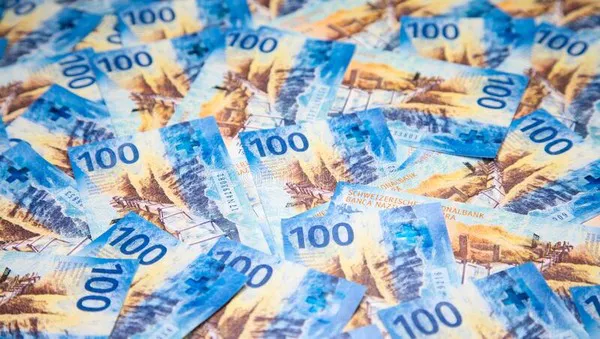Switzerland is known for its strong economy and stable currency, the Swiss franc (CHF). However, with the introduction of new banknotes in 2016, many people are wondering if their old Swiss francs are still valid. In this article, we will explore the validity of old Swiss francs and provide a comprehensive guide to understanding Swiss currency.
History of Swiss Francs
The Swiss franc has a rich history dating back to the 19th century. It was introduced as Switzerland’s official currency in 1850 when it replaced several other currencies that were used in the country. The Swiss franc quickly gained popularity due to its stability and strength against foreign currencies. Today, the Swiss franc is one of the most widely traded currencies in the world, and it serves as a safe-haven currency during times of economic uncertainty.
Old Swiss Francs
The old Swiss francs were in circulation until 2016 when the Swiss National Bank (SNB) introduced new banknotes. The old banknotes featured various designs, including famous Swiss personalities such as William Tell and Conrad Gessner. These banknotes had been in circulation for over 20 years, and some of them were getting worn out and needed replacing.
Validity of Old Swiss Francs
So, are old Swiss francs still valid? The answer is yes, but with some limitations. According to the SNB, old Swiss franc banknotes can still be exchanged for new ones at banks and post offices. However, the exchange process may come with some restrictions. For example, banks and post offices might only accept a limited amount of currency per person or per day. Additionally, some banks may charge a fee for exchanging old banknotes.
Exchanging Old Swiss Francs
If you have old Swiss francs that you would like to exchange for new ones, the first step is to check with your bank or post office. Most banks and post offices in Switzerland will allow you to exchange old banknotes for new ones. However, it’s important to note that some banks may charge a fee for the service.
When exchanging old Swiss francs, it’s also essential to bring valid identification such as a passport or ID card. This is a requirement by law to prevent money laundering and other illegal activities.
Value of Old Swiss Francs
The value of old Swiss francs can vary depending on the condition of the banknote and its rarity. Some collectors are willing to pay a premium for rare or unusual banknotes, while others may be less interested in common banknotes.
If you are unsure about the value of your old Swiss francs, it’s always a good idea to do some research before attempting to sell them. There are many online resources available, such as auction sites and currency dealers, that can provide information on the current market value of old Swiss franc banknotes.
Security Features of Swiss Francs
Swiss francs are known for their high level of security features. The new CHF banknotes, introduced in 2016, feature advanced security elements, including holographic color effects, microtext, and a see-through register. These features make it difficult for counterfeiters to reproduce the banknotes accurately.
Additionally, the Swiss National Bank regularly updates the security features of its banknotes to stay ahead of counterfeiters. For example, the SNB plans to introduce a new 1,000 CHF banknote in 2020 that will include additional security features.
Spending Swiss Francs Abroad
Swiss francs are widely accepted in Switzerland and Liechtenstein, but they may not be as readily accepted in other countries. If you plan to travel outside of Switzerland, it’s a good idea to have some foreign currency on hand, such as US dollars or euros. You can exchange Swiss francs for other currencies at banks and currency exchange offices.
Conclusion
In conclusion, old Swiss francs are still valid, but with some limitations. They can be exchanged for new banknotes at banks and post offices, but there may be restrictions on the amount that can be exchanged per person or per day. Additionally, some banks may charge a fee for exchanging old banknotes.
If you have old Swiss francs that you would like to exchange, it’s always a good idea to check with your bank or post office first. When exchanging old Swiss francs, make sure to bring valid identification, such as a passport or ID card.
Swiss francs are known for their high level of security features, which make them difficult to counterfeit. While they are widely accepted in Switzerland and Liechtenstein, it’s a good idea to have some foreign currency on hand if you plan to travel outside of these countries.
Overall, the Swiss franc remains a stable and reliable currency, and its rich history and strong security features continue to attract investors and collectors alike.


